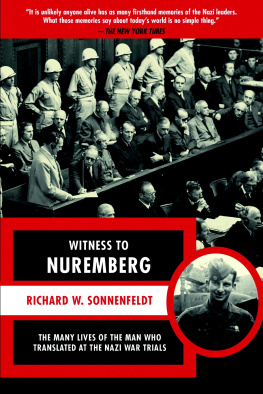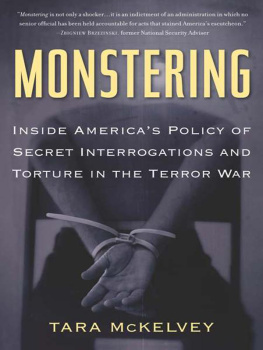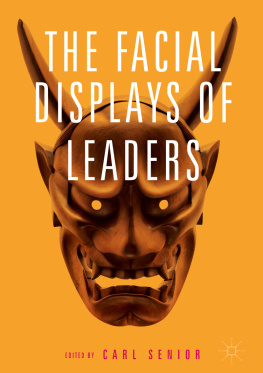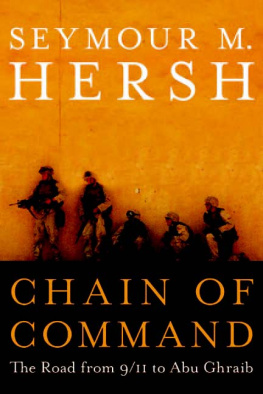First published 2007 by Paradigm Publishers
Published 2016 by Routledge
2 Park Square, Milton Park, Abingdon, Oxon OX14 4RN
711 Third Avenue, New York, NY 10017, USA
Routledge is an imprint of the Taylor & Francis Group, an informa business
Copyright 2007, Taylor & Francis.
All rights reserved. No part of this book may be reprinted or reproduced or utilised in any form or by any electronic, mechanical, or other means, now known or hereafter invented, including photocopying and recording, or in any information storage or retrieval system, without permission in writing from the publishers.
Notice:
Product or corporate names may be trademarks or registered trademarks, and are used only for identification and explanation without intent to infringe.
Library of Congress Cataloging-in-Publication Data
Mestrovic, Stjepan Gabriel.
The trials of Abu Ghraib : an expert witness account of shame and honor / S.G. Mestrovic.
p. cm.
Includes bibliographical references and index.
ISBN-13: 978-1-59451-334-3 (hardcover : alk. paper)
ISBN-10: 1-59451-334-1 (hardcover : alk. paper)
1. Trials (Military offenses)United States. 2. Courts-martial and courts of inquiryUnited States. 3. Abu Ghraib Prison. 4. Prisoners of warAbuse ofIraq. 5. Iraq War, 2003Prisoners and prisons. 6. United StatesArmed ForcesIraq. I. Title.
KF7641.M47 2007
343.730143--dc22
2006030322
ISBN 13 : 978-1-59451-334-3 (hbk)
Designed and Typeset by Straight Creek Bookmakers.
I wrote this book based on my experiences as an expert witness in sociology for the defense in the Abu Ghraib courts-martial of Javal Davis, Sabrina Harman, and Lynndie England. It quickly became obvious that these courts-martial were about more than these specific soldiers. Based on chance circumstances and my background and training in clinical psychology, I served simultaneously as an expert witness in psychology in that I was asked to give my professional opinion on the psychiatric reports and psychological factors pertaining to the abuse at Abu Ghraib. Unexpectedly, the prosecutor asked for my professional opinion on a psychiatric report while I was on the witness stand, and it turned out that I was qualified to give itso, with the permission of the judge, I did.
Indeed, in this book I blend perspectives from sociology and psychology into something like a self-help book on public policy regarding Abu Ghraib and its consequences. As an academic, I am used to reading and writing books that merely analyze social problems but do not propose solutions. And I am used to artificial turf barriers between sociology and psychology, even though the two disciplines were practically indistinguishable at birth. It can be depressing to read such books, because one feels helpless in fixing the problems that are uncovered.
These stiff, academic barriers did not matter at all in the courtroom at Fort Hood. The judge, prosecution, and defense attorneys were invoking ideas and emotions that transcended the limits of the social sciences. Why did the soldiers obey unlawful orders? That is a question for psychologists. How did the poisoned social climate at Abu Ghraib contribute to the abuse? That is a question for sociologists. Why were officers not put on trial? Who established the unlawful policies? How could soldiers recognize an unlawful order? How can such abuse be prevented in the future? These and other questions are for anyone who engages emotionally with the reality of what happened at Abu Ghraib.
In this book, I first analyze and then propose ways of fixing the poisoned atmosphere that set the stage for the abuse along the lines that a therapist would follow in trying to fix a dysfunctional relationship. It occurred to me, while sitting in the courtroom at Fort Hood, that the international, grand dimensions of the unfolding drama echoed the everyday realities of abuse in dysfunctional families. What both sorts of abuse have in common are shouting instead of talking, control instead of establishing rapport, violence instead of reasonable action, humiliation instead of respectand, in general, a negative course that leads to unfavorable consequences instead of the desired course that leads to peace, stability, and respect.
It seems that the root causes of domestic as well as international abuse are very similar: an attitude of being above the law, arbitrary and capricious policies, chronic chaos, lack of emotional support and validation, and so on. It seems that the ways to fix dysfunctional relationships as well as groups are also similar: respect for fixed moral boundaries, consistency, stability, and empathy, among other ingredients.










